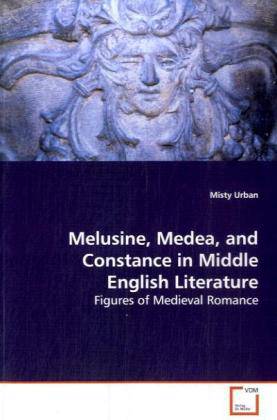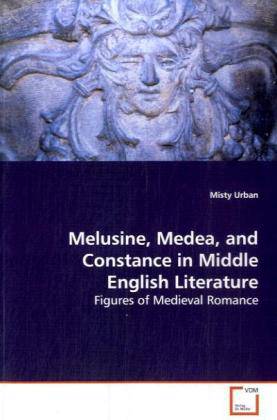
- Afhalen na 1 uur in een winkel met voorraad
- Gratis thuislevering in België vanaf € 30
- Ruim aanbod met 7 miljoen producten
- Afhalen na 1 uur in een winkel met voorraad
- Gratis thuislevering in België vanaf € 30
- Ruim aanbod met 7 miljoen producten
Zoeken
Melusine, Medea, and Constance in Middle English Literature - Figures of Medieval Romance
Figures of Medieval Romance
Misty Urban
Paperback | Engels
€ 99,95
+ 199 punten
Omschrijving
If woman was already considered a baser being in medieval English literary culture, then what explains the monstrous women--part-animal, or magically-empowered--who function as typical romance heroines? If the monstrous women simply dramatize the conventions of medieval misogyny, then why do so many of them found dynasties, establish empires, and fill the royal seats across Europe with their offspring? A closer look at the figures of Constance, Medea, and Melusine in 14th, 15th, and early 16th-century English narratives reveals how metaphorical female monstrosity functions as a critical lens that allows authors, and audiences, to reflect on and re-examine misogynistic conventions, patriarchal authority, and the romance formula itself. Arguing that the Middle English romance constructs new possibilities for fiction, this study uses recent scholarship on monster theory and medieval women to theorize the presence of these monstrous women in medieval romance, discovering how they trace the formulation of a distinct gender ideology and expose the flaws of a literary rhetoric that, in defining the female as Other to the normative male, makes women into monsters.
Specificaties
Betrokkenen
- Auteur(s):
- Uitgeverij:
Inhoud
- Aantal bladzijden:
- 192
- Taal:
- Engels
Eigenschappen
- Productcode (EAN):
- 9783639114072
- Verschijningsdatum:
- 6/01/2009
- Uitvoering:
- Paperback
- Formaat:
- Trade paperback (VS)
- Afmetingen:
- 152 mm x 229 mm
- Gewicht:
- 263 g

Alleen bij Standaard Boekhandel
+ 199 punten op je klantenkaart van Standaard Boekhandel
Beoordelingen
We publiceren alleen reviews die voldoen aan de voorwaarden voor reviews. Bekijk onze voorwaarden voor reviews.








